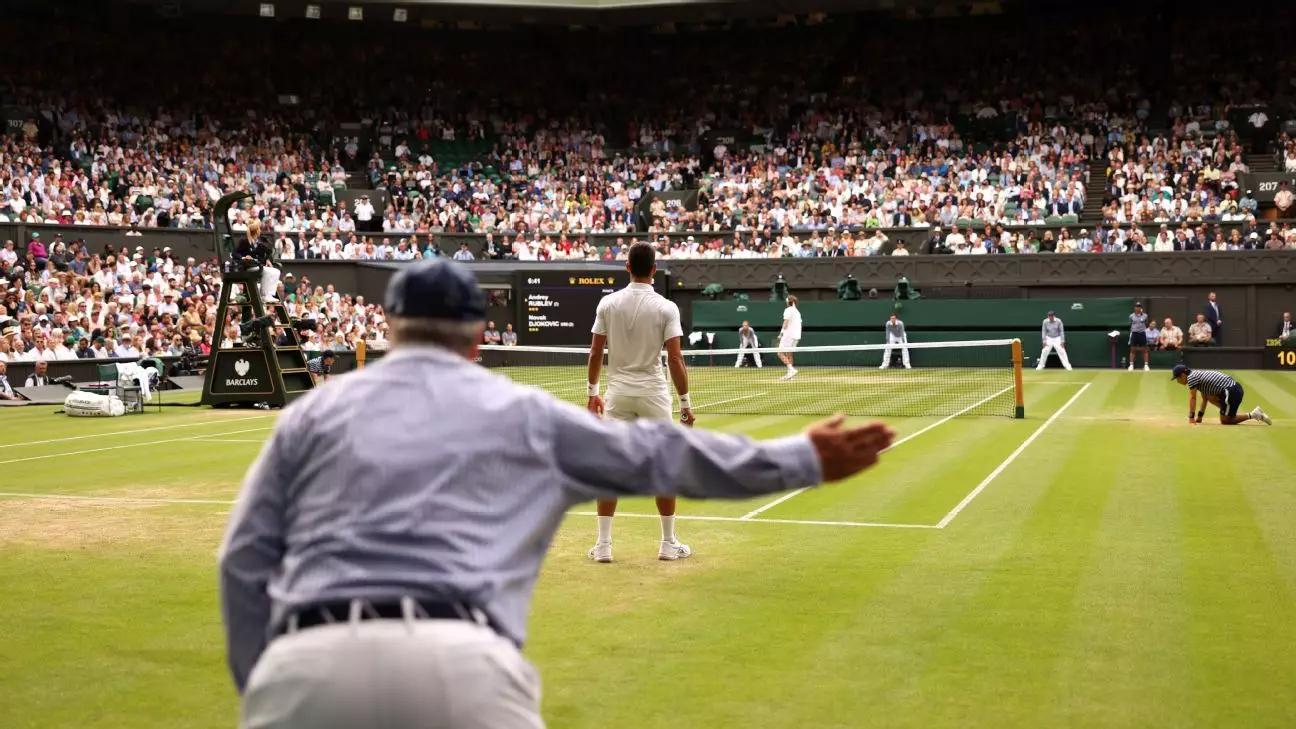The All England Club has made headlines by deciding to eliminate line judges from next year’s Wimbledon championships. This progressive move underscores a significant transformation in tennis officiating as it adopts automated line-calling powered by advanced artificial intelligence technology. As we enter 147 years of tradition, this will be the first time in Wimbledon’s history that matches are judged without human oversight on line calls, marking a pivotal moment not just for this iconic tournament, but for the entire sport.
Over the past few years, major tennis tournaments have begun to integrate technology to enhance match accuracy. The US Open introduced the Hawk-Eye Live system in 2020, and that innovation has gradually trickled through the ATP Tour. With Wimbledon now joining the ranks of tech-savvy tournaments, this integration of artificial intelligence suggests a growing acceptance within the sport to rely on technology for critical decision-making processes. The move also represents a broader trend in sports where technological advancements are increasingly seen as vital for enhancing fair play and player experience.
Implications for Players and Fans
The All England Club’s decision is not merely a logistical change; it represents a perceived improvement in the consistency and accuracy of officiating. Sally Bolton, CEO of the All England Club, highlighted that the decision was made after careful consideration of comprehensive testing. By employing automated voice calls to render line judgments, the essence of fair play is maintained. For players, this means they can expect uniform conditions akin to those at other tournaments on the ATP Tour, thus streamlining their competitive experience.
Despite the march of technology, the All England Club acknowledges the long-standing contribution of line umpires to the sport. In her statement, Bolton expressed gratitude for their commitment over the decades, reflecting a balanced perspective between honoring past traditions and embracing modern efficiencies. As the tournament navigates this transition, it must grapple with the emotional resonance of human officiating and the impersonal nature of technology.
Looking Ahead: A New Era for Wimbledon
Wimbledon will not only implement this groundbreaking officiating method but is also making changes to its final match schedules. Next year, both the men’s and women’s singles finals will have a later start time, set for 4 p.m. local time. This adjustment not only reflects contemporary broadcasting considerations but also acknowledges the changing dynamics of audience engagement in sports.
The All England Club’s decision marks a turning point in tennis, rewriting the script on officiating. While the elimination of line judges may stir mixed feelings among traditionalists, the move towards AI-powered adjudication reflects a commitment to the future of the sport. As Wimbledon prepares for this historic evolution, it will undoubtedly influence how other tournaments approach technology, setting a precedent for the next chapter in tennis officiating. The unfolding journey of balancing tradition with innovation is now more crucial than ever as tennis embraces a future where technology plays a central role.


Leave a Reply